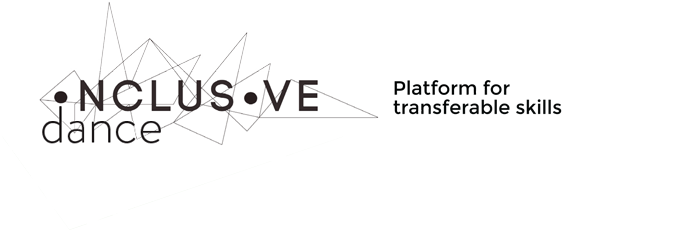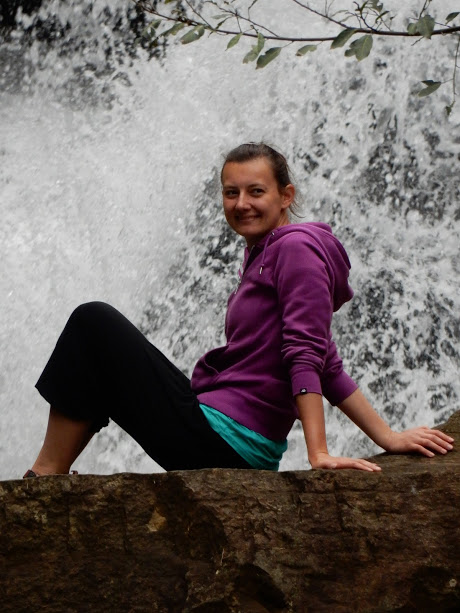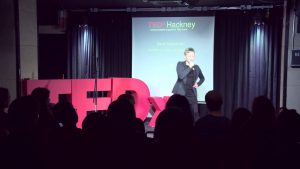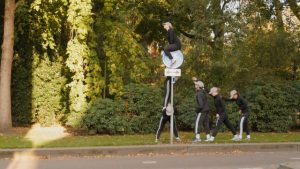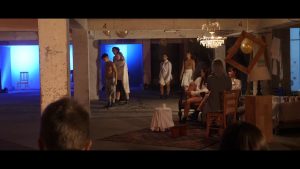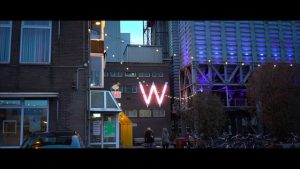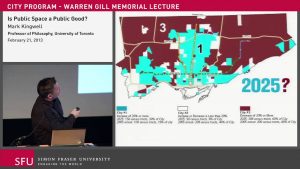by Katerina Dietzova
social worker, leader of the dance classes for people with Parkinson’s in Turnov (CZ)
Lucie studied at Business Academy, department of tourism; later she broadened her education University Liberec, where she studied the pedagogy. She decided to change the course of her profession and started to work as a social worker. In connection to her new direction she followed many accredited courses of physiotherapy, first aid, working with epilepsy patients and others.
During dance classes for Parkinson’s she is using her experiences from taichi, physiotherapy courses focused on body posture and from study program The Conscious body based on Laban/Bartenieff movement analysis and Body Mind Centering.
- What is your profession? How do you earn your living?
I work as a social worker, more precisely as an assistant in households for men with mental disorder. My job description has a lot of variety and includes activation of my clients as well. That gives me opportunity to interconnect my daily profession with my interests and I find it wonderful that even in this profession there is a space for dance and movement. Dance classes with people with Parkinson’s are one of my favorite activities I’m doing in my free time.
- How did you start dancing? Was dance always part of your life? And which kind of dance practice are you nowadays dedicated to?
I started to dance at the age of eight and till I was fifteen, dancing on stage meant a lot to me. Then I stopped for some years and spent more time on sports (karate, cycling), but later yoga, African and oriental dance lead me back. Nowadays I’m studying taichi and I’m participating on study program “The Conscious body” of a dancer and dance therapist Rena Milgrom.
- How did you get to the dance for Parkinson‘s classes?
I got an invitation to this amazing pilot project from Rena Milgrom, who was leading the classes already in Prague. I got in contact with the organization Parkinson-Help and Duncan Centre Conservatory and our collaboration could start.
- How did your view on dance change thanks to the work with people with Parkinson’s?
A lot! To my big surprise, part of such a dance class is taking place on the chair not using the space. In the beginning I found it very limiting, but I have to admit that this was prejudiced opinion. The chair became on the most helpful objects in leading such a class, object of support, which can be a prop as well. There were many beautiful dances created on the chair in this class; it gives people the opportunity to dive into the depth of the movement quality while being safely seated.
- What is the sense/aim of dance for people with Parkinson?
My motto is: “Until I’m moving and dancing, even only with my thought, I know I live and can enjoy the joy of being.” There lays the sense of dance for me, it’s not about perfect execution of the movements or about reaching extremities. It’s about consciously lead movement, however minimal or only executed in the mind. Authentic self- expression and common joy of dance are very important as well.
- How does teaching dance classes for Parkinson’s fit within your profession? Is there something what you could “re-use” from you other teaching activities?
As I mentioned earlier part of my profession is the activation of my clients, which I do through movement and dance as well. Therefore my experiences are blending; sometimes we are only having fun while moving on music with my clients from elderly house and suddenly some very specific movement proposal crystallizes from that, and the other way around as well.
- Could you share the most valuable moment of experience from this class?
One of very strong moments, which stayed with me for very long time, was a moment after the class, when all the dancers started to share experiences from that class. Nobody was leaving, everybody wanted to be part of that moment and listen to the others. One dancer in the end told: “I don’t want even to stand up, I don’t want to lose this feeling of now.” That day, the tuning and experience of the group was very strong.
